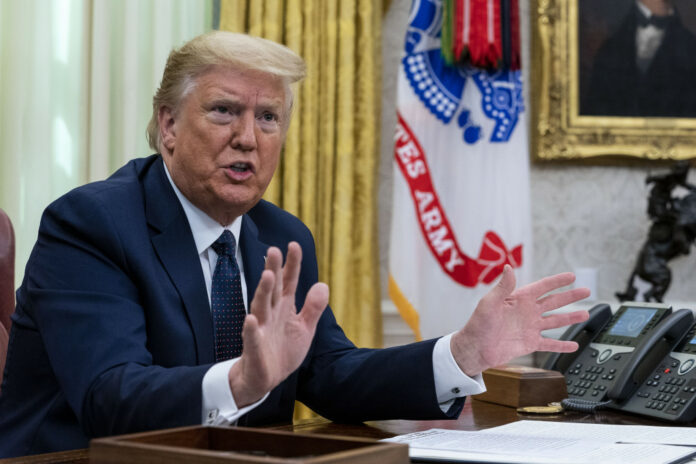President Donald Trump signed an executive order on Thursday that targeted social media companies. The order came in reaction to a blue “fact check” link placed by Twitter on two of the president’s more politically-minded posts, tacitly questioning their veracity.
There is NO WAY (ZERO!) that Mail-In Ballots will be anything less than substantially fraudulent. Mail boxes will be robbed, ballots will be forged & even illegally printed out & fraudulently signed. The Governor of California is sending Ballots to millions of people, anyone…..
— Donald J. Trump (@realDonaldTrump) May 26, 2020
Just hours before the signature ceremony, Twitter also used that the same blue “fact check” label on anti-American propaganda from Lijan Zhao, a spokesman for China’s foreign ministry.
Zhao’s tweet questioned Congressional testimony by CDC Director Robert Redfield, asserting that Redfield was “was caught on the spot” during an exchange with lawmakers and that “it might be US army who brought the epidemic to Wuhan.” According to an investigative piece by Vice, that story “has no grounding in fact.”
2/2 CDC was caught on the spot. When did patient zero begin in US? How many people are infected? What are the names of the hospitals? It might be US army who brought the epidemic to Wuhan. Be transparent! Make public your data! US owe us an explanation! pic.twitter.com/vYNZRFPWo3
— Lijian Zhao 赵立坚 (@zlj517) March 12, 2020
Trump said that sites like Twitter and Facebook have “unchecked power” as he signed the executive order on Thursday. A draft of that order directed the FCC to review whether there should be limitations to tech platforms’ immunity from liability over third party content on their sites.
Related Story
As Protests Rage In Multiple U.S. Cities, Don Lemon Goes After Trump: “Nobody Wants To Hear From The White House Right Now”
Section 230 of the Communications Decency Act, passed in 1996, shields platforms from liability, something that the industry has said has allowed social media sites to grow and flourish. Without it, platforms would be forced to police every piece of content posted on their sites to ensure that it does not expose them to lawsuits.
The draft executive order suggested that the platforms were now acting as gatekeepers in the way that they moderate third party content. Section 230 also does not hold platforms liable if they restrict access to “obscene, lewd, lascivious, filthy, excessively violent, harassing or otherwise objectionable content.”






